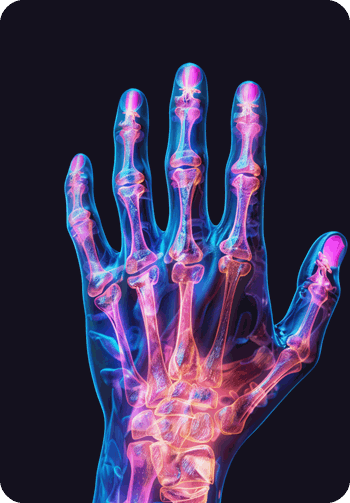Gout is a condition often associated with joint pain, swelling, and inflammation, primarily in the feet or toes. The discomfort caused by a gout flare may significantly impact day-to-day living. While it may appear sporadic or unpredictable, gout often affects specific groups more frequently due to various risk factors.
What Is Gout?
Gout is a type of arthritis caused by a buildup of uric acid crystals in the joints. Uric acid is a compound formed when the body breaks down purines, which are naturally occurring substances in the body. Uric acid is normally dissolved in the blood and disposed of by the kidneys through urine. When the body produces excessive amounts or the kidneys fail to effectively remove it, uric acid levels increase, leading to the formation of sharp crystals in the joints. This process manifests as intense pain and swelling, frequently affecting the big toe, although other joints such as the ankles, knees, and fingers may also be involved. Episodes of gout, known as flares, may last for days or weeks and can recur over time.
What Are the Risk Factors?
Gout can affect anyone. Specific factors may increase an individual’s likelihood of developing the condition. These factors include both genetic predispositions, lifestyle choices, and more, including:
- Dietary Habits: Excessive consumption of foods and beverages high in purines can elevate uric acid levels. Examples include red meats, seafood, and organ meats, as well as alcohol.
- Body Weight and Obesity: Being overweight or obese places additional stress on the body and reduces the efficiency of uric acid elimination.
- Family History: Genetics plays a notable role in determining susceptibility to gout. Individuals with a family history of the condition may have a higher likelihood of experiencing it themselves.
- Underlying Health Conditions: Certain medical conditions, like kidney disease, hypertension, and diabetes, can interfere with the body’s ability to regulate uric acid levels.
- Certain Medications: Some medications, including diuretics and specific drugs used to manage high blood pressure, may influence uric acid levels, heightening the probability of gout development.
How Can You Prevent Developing It
Gout prevention revolves around targeting its underlying causes. The focus is particularly on dietary and lifestyle habits. Proactive management strategies can help minimize the frequency of flares and lower uric acid levels.
- Maintain a Well-Balanced Diet: Opt for a diet that reduces purine-rich foods. Staying hydrated throughout the day aids in flushing uric acid out of the system.
- Manage Body Weight: Losing excess weight through a combination of exercise and healthy eating habits may positively influence uric acid metabolism.
- Moderate Alcohol and Sugar Consumption: Limiting alcohol, particularly beer and liquor, may significantly reduce the buildup of purines.
- Monitor Health Conditions: For individuals living with medical conditions such as diabetes or hypertension, effective management can reduce the secondary risk of gout. Adhering to medical advice and monitoring health regularly is recommended.
- Use Medication When Prescribed: Physicians may occasionally prescribe medications to reduce uric acid levels or prevent flare-ups for those with elevated risk factors. Appropriate use of these medications is integral for managing and minimizing symptoms.
Speak to a Podiatrist About Preventive Care
Gout can significantly alter one’s quality of life, but it is by no means insurmountable. Identifying and addressing risk factors, combined with practical preventative measures, can help reduce the likelihood of enduring painful flares. Consulting with a podiatrist or healthcare professional can guide individuals in organizing an effective prevention plan tailored to their specific needs.
- mylovelyfurryfriend discover expert tips on dog health
- Infectious Diseases Updates – Stay Informed, Stay Protected!
- Wegovy For Weight Loss – A Breakthrough in Managing Obesity!
- Emergency Medicine Forum – A Hub for Fast-Paced Knowledge, Support & Updates!
- Pediatrics Discussions – Insights, Challenges, and Expert Advice for Better Child Health!





Leave a Reply